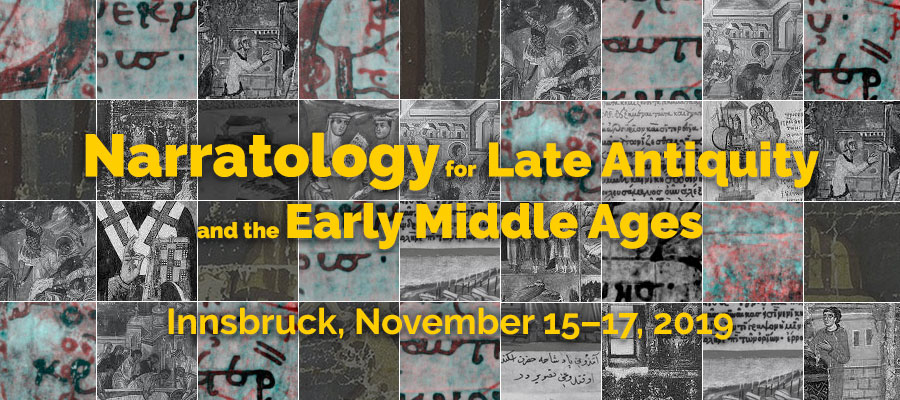Narratology for Late Antiquity and the Early Middle Ages, Innsbruck, November 15–17, 2019
Even though controversial, the long transition from the Roman World to the Medieval “state”-system has yet to reach a level of scholarly pervasion that is comparable to Classical Antiquity. This is especially true for the analytical tools with which we approach our sources. Due to entrenched convictions about the inferiority of the late antique source there is not only a lack in editions, commentaries, and translations, but a deficit in methodological exchange as well.
One field with considerable leeway to address those challenges is narratology, i.e. the tools to render visible the inner workings that give a text its outward shape. As with many methodological issues it necessitates various disciplines to interact. Hence, philologists, historians, researchers in literature or languages and others are hereby welcomed to take part in this shared conversation. We aim at finding new (and revitalising old) ways to read and understand the sources as well as applying variants of critical theory, shifting our interpretation towards new questions or implementing new paradigms.
We propose an open format, with short presentations, Q&A and regular plenary discussions. The workshop will be organised in thematic rather than geographical or chronological strands in order to maximise the chances of a fruitful cross-disciplinary exchange. After the workshop, we are planning a publication of a special journal issue with the contributions.
Possible subjects could be:
- analyses of text structure and its implications / analyses of the form\/message-interface
- implementation of linguistic or literary theory / postmodern or postcolonial theory
- (re-)calibrations of semantic or lexical fields
- micro- and macro-comparative approaches through genres, time, opera etc.
- considerations about authors, “publication”, and audiences, circulation of texts and networks and how they shape the production of a text and a (meta-)narrative
- approaches with broad understandings of narrative: narratives of architecture, narratives of art
- metanarratives of historical and archaeological inquiry
The conference will have an accommodation and travel fund and there is no registration fee.
